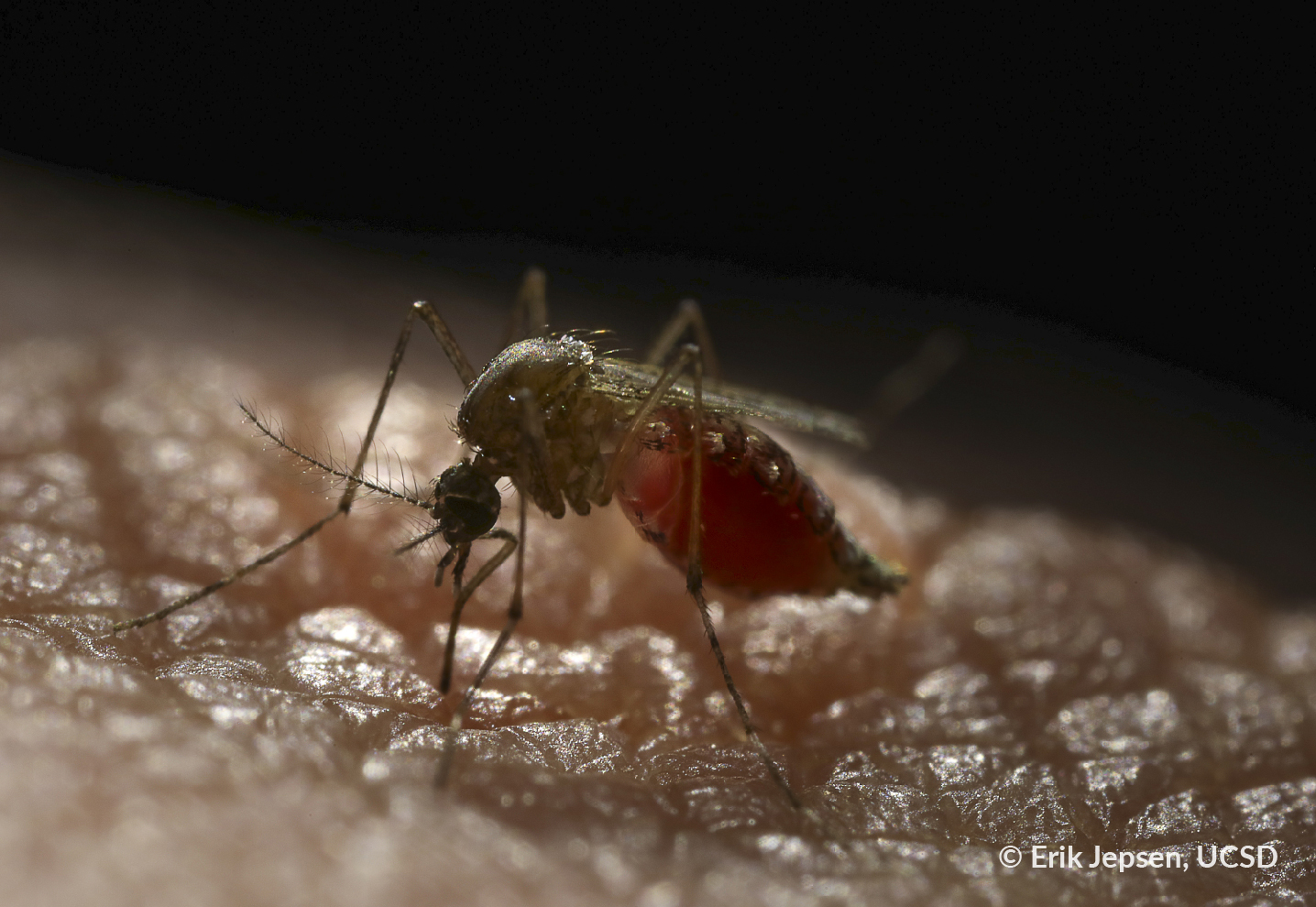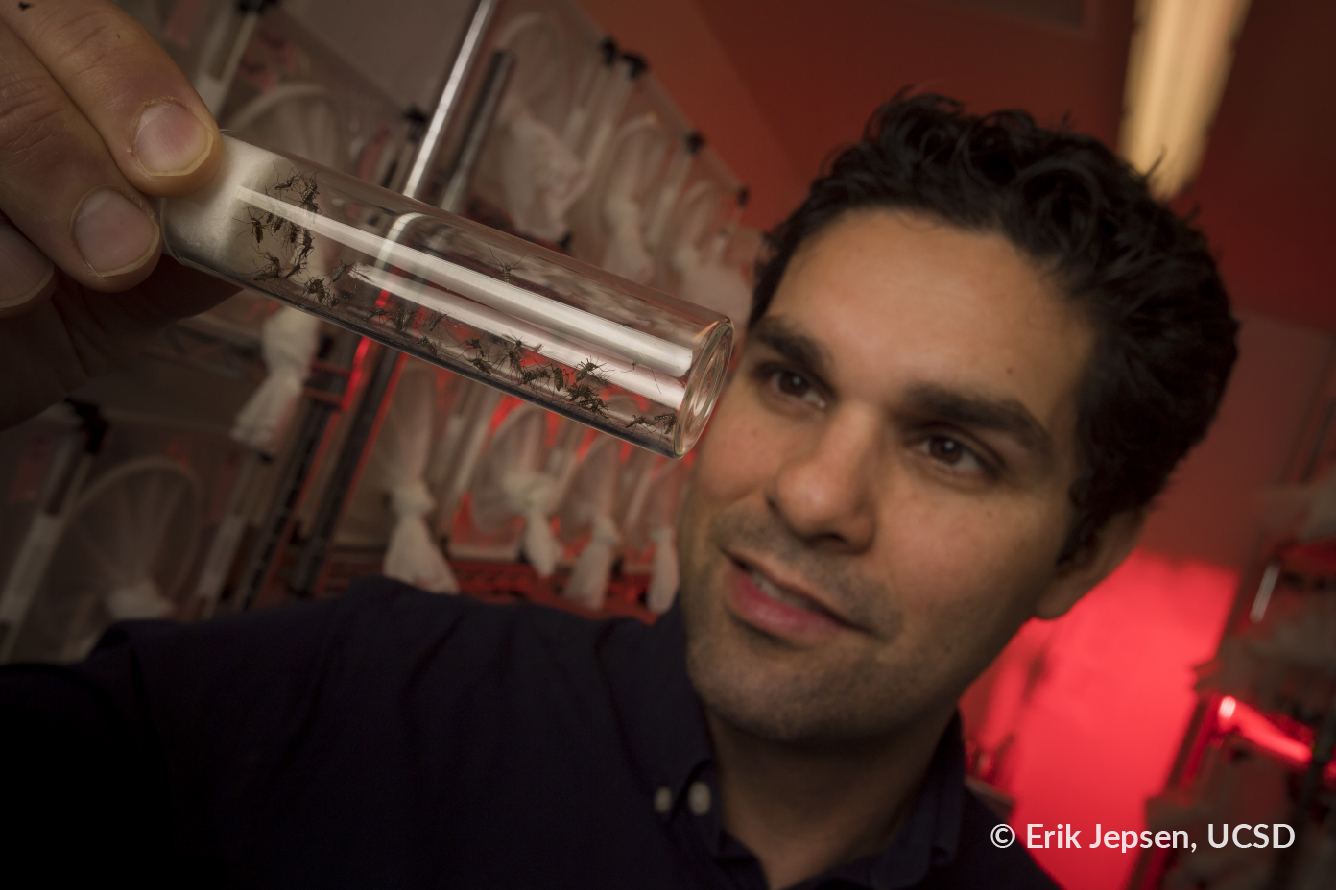By Dr Omar Akbari, The Akbari Lab, UC San Diego
Every year on August 20, World Mosquito Day is commemorated to increase public awareness of the potentially life-threatening diseases spread by mosquitoes, and the steps that may be taken to prevent them. The day was originated in 1897 by Dr Ronald Ross of the Liverpool School of Tropical Medicine. During a dissection, Ross discovered the malaria parasite in the stomach walls of a female mosquito, leading him to declare the first World Mosquito Day as an opportunity to raise awareness of the link between mosquitoes and malaria.

Aedes aegypti mosquitoes are the main vector of several major pathogens including yellow fever, dengue, and Zika viruses.
Mosquitoes are perhaps the most dangerous animals in the world. They are the primary vectors for major human diseases such as yellow fever, Zika, dengue fever, and malaria. Mosquito-borne illnesses infect almost 700 million people every year, resulting in thousands of deaths. These diseases disproportionately affect the poorest populations and are most prevalent in tropical and subtropical regions. In the last decade, numerous countries have experienced major outbreaks which have affected populations, claimed lives, and taxed health systems. The World Health Organization (WHO) has also raised concerns about insecticide-resistant mosquitoes and drug-resistant malaria parasites emerging, which could further thwart efforts to stop the spread of these deadly diseases.
World Mosquito Day provides an opportunity to acknowledge the progress made in the fight against mosquito-borne diseases so far and raise awareness of the challenges they still pose worldwide. Although useful, current approaches are not enough to curb the expansion of vector-borne illnesses, once again on the rise in the last few years.
At The Akbari Lab, we are investigating the potential of new technologies to help control the spread of mosquito-borne diseases, such as malaria or dengue. Our research focuses on understanding the fundamental genetics and physiology of mosquitoes with the objective of developing novel, inventive, and creative genetic control technologies to lessen the burden of human diseases brought on by mosquitoes.

Investigating Aedes aegypti mosquitoes in the lab.
Due to factors such as climate change, disease-carrying mosquitoes are spreading. Southern California, for example, where our lab is located, has become a new breeding ground for non-native Aedes mosquitoes since 2001. This further raises concerns about the spread of mosquito-borne diseases in regions with historically low infections rates. How mosquito populations are evolving and the potential for future epidemics – or even pandemics – spread by these tiny killers beckons further investigation.
If we are to successfully control mosquito-borne diseases and address existing challenges in the fight towards their elimination, we must invest in more creative preventative solutions and treatments as well as new technologies to add to our current toolbox of interventions.
Happy World Mosquito Day!
Recent posts
